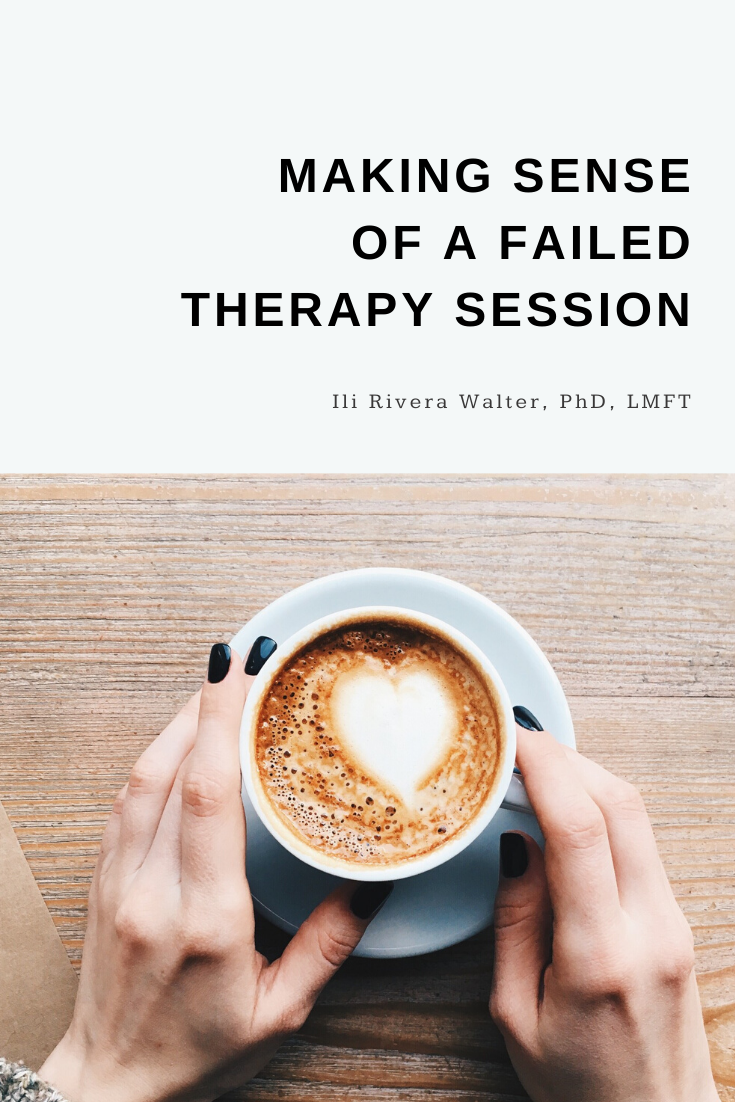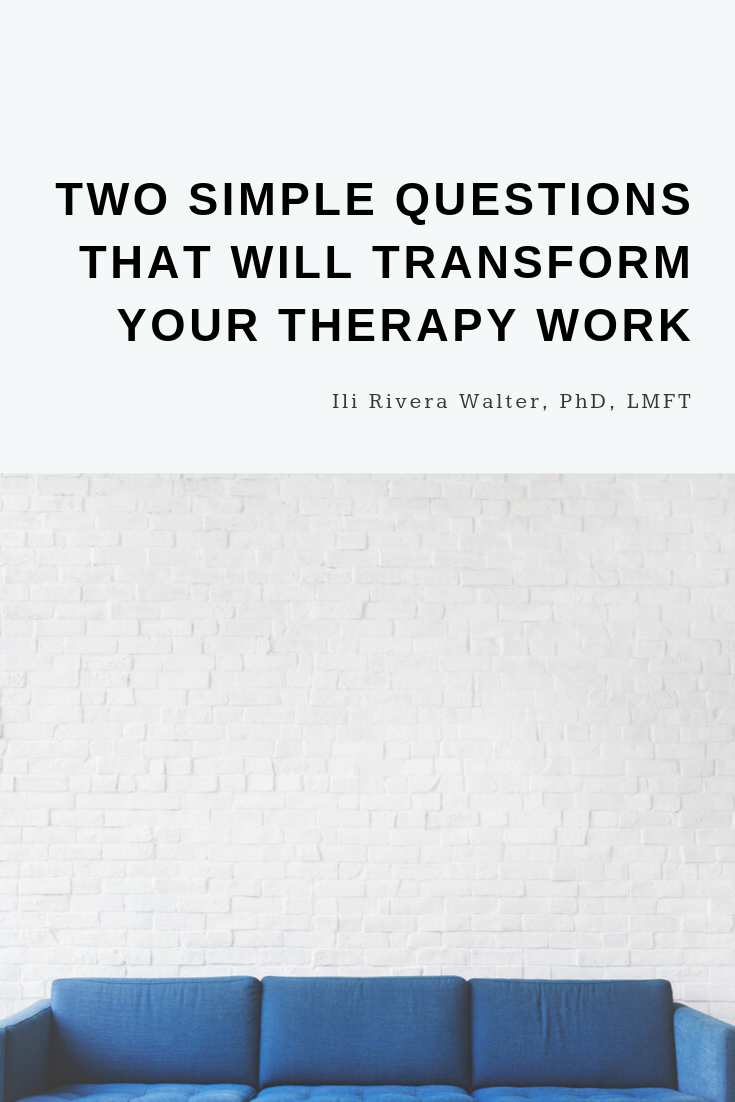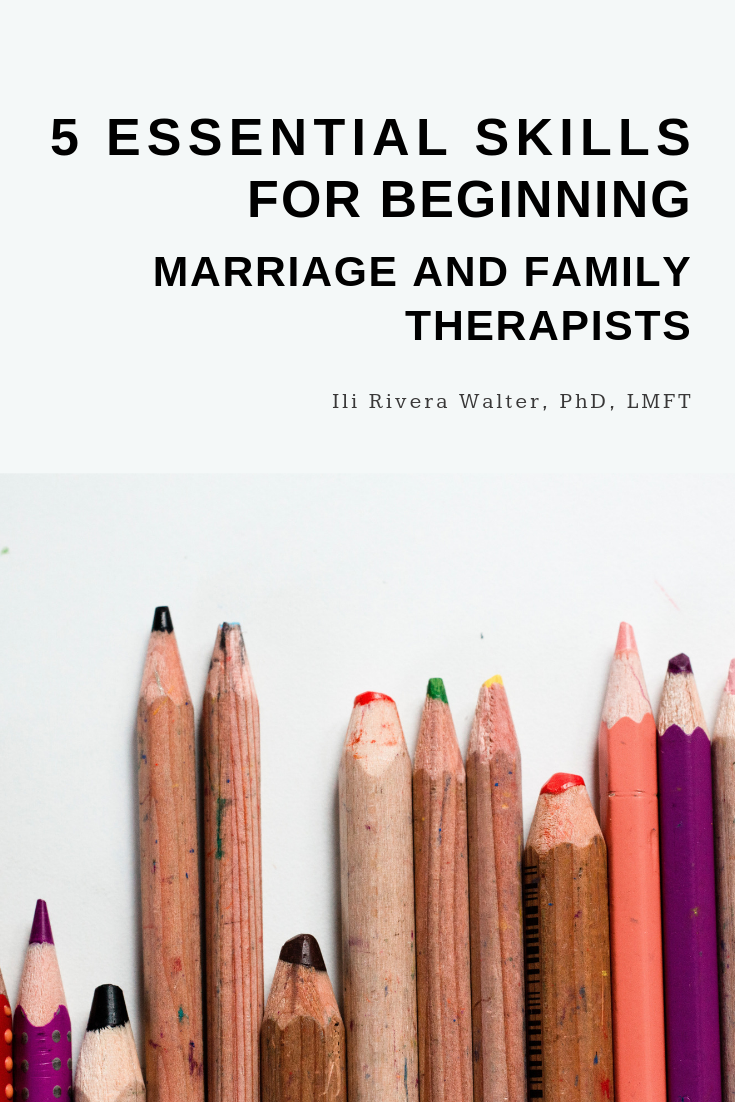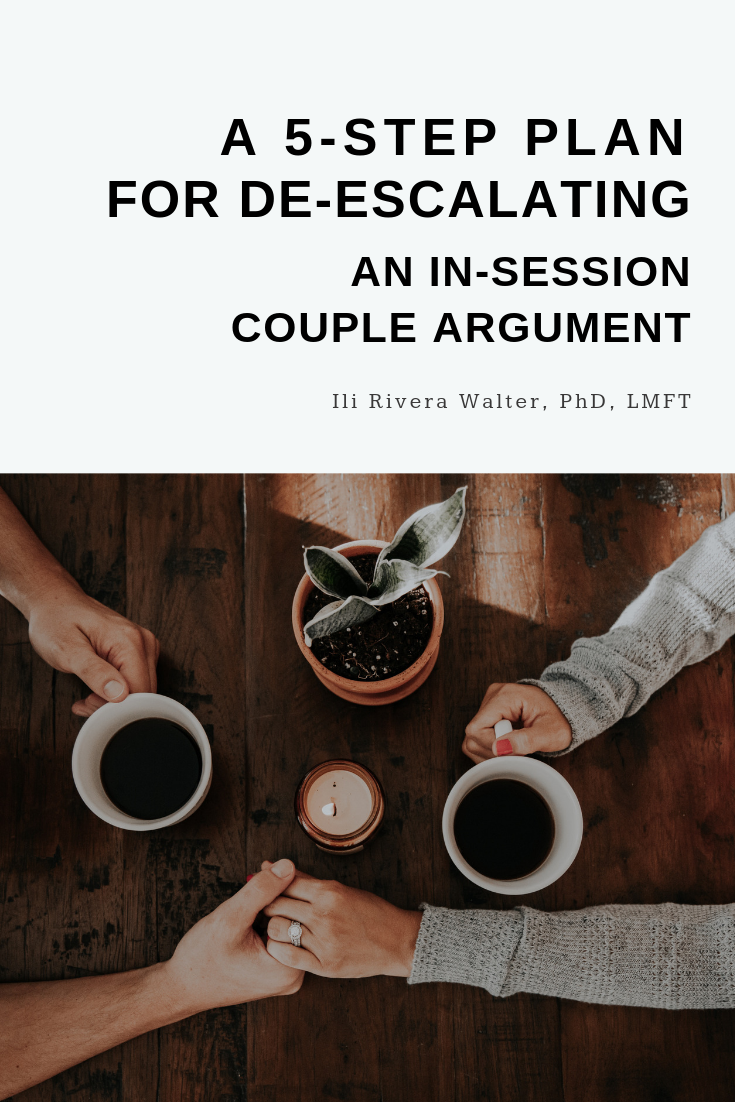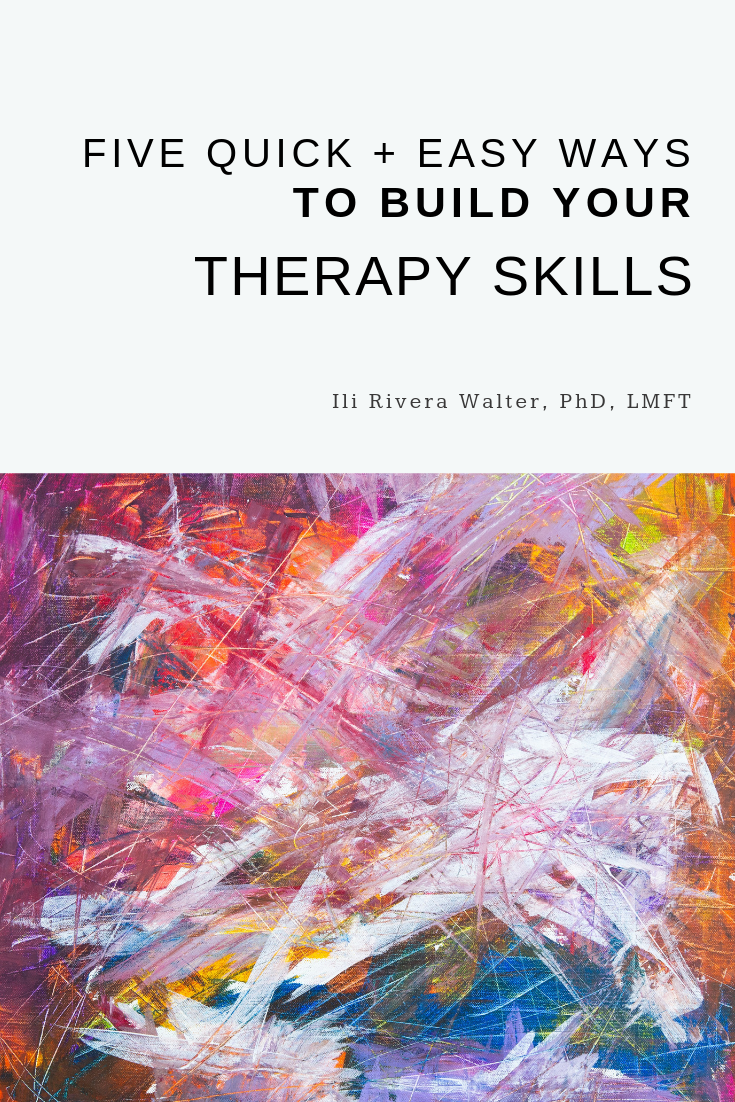This article was originally published on August 9. 2016, and updated on June 23, 2019.
Most of us, therapists, have been there: A simple disagreement turns into an all-out screaming match in the middle of a therapy session. This is, thankfully, not a common scenario for most therapists, but it’s also not rare--especially for therapists who specialize in couple therapy.
In this post, I cover steps for disrupting an argument occurring in a couple therapy session. Intervention on the part of the therapist is necessary during some conflicts, because the arguments can cause further damage in the couple relationship. And, if therapists allow arguments to continue for too long, they can affect the couple’s sense of safety when in therapy.
The main goals of intervention in this case are to:
Interrupt the escalation
Restore safety and composure
Re-establish communication, with boundaries, within the session
Promote understanding and a team approach
Address therapy as the context for the argument
1 | Interrupt the escalation
John Gottman (1999) explains that one of the factors he assesses in the first session with a couple is, "What is the nature of their conflict and its regulation? (Gottman, 1999, p. 114). When you are present during a couple argument, you witness the dynamic that reveals the answer to this question. Therefore, the event of an in-session argument contributes to therapeutic assessment. After observing the conflict, you will, hopefully, also witness, or assist in, its regulation.
Interrupting an argument is, oftentimes, unavoidable, (I've mentioned interrupting as an essential basic counseling skill in an earlier post) in order to direct the session. Without interrupting, it is difficult to stop an escalating argument. You can wait it out, of course. However, if the couple isn't able to regulate the conflict, they could argue for the entire session. Yes, it’s their time and money, but therapy is also the therapist's domain, and we are responsible for what does, and does not, happen in therapy (Napier & Whitaker, 1978).
In order to stop the argument, you may need to be firm. You may need to physically move (i.e., stand up, leave the room, etc.). You may need to speak loudly, or simply say “excuse me.” You could use a strategic intervention. There are many options, both straightforward and creative. Your method, of course, will vary depending on your style, the couple, and the argument. The key is to stop the escalation, so that clients do not cause further damage to their relationship in the session, and the therapeutic environment stands for a difference in the couple dynamic.
2 | Restore safety and composure
The simplest way to interrupt escalation and end a cycle of anger is to ask clients to take a time-out (in or out of the therapy room). Assigning a task, such as prayer, meditation, or visualization can help restore calm and connection. The couple can separate physically for a few minutes--take a bathroom break, take a walk, for example.--with the purpose of calming down. Once clients return to the therapy room, focus on setting boundaries and goals for the rest of the session, if time permits.
3 | Re-establish communication with boundaries
During this time, you will have an active role in directing the rest of the session. Give options for how the session can progress. Clients may want to process the argument, or they may not. You can help them maintain non-conflictual engagement through silent or boundary-guided activities, such as writing vs. speaking, experiential and non-directive interventions, and taking turns speaking.
4 | Promote understanding and a team approach
Through the ideas listed in step 3, you are able to establish a team approach in the session by helping clients express their feelings and communicate understanding to one another, rather than continue in a reactive communication pattern. Gottman (1999) emphasizes the importance of couples' ability to show "gentleness and positive affect even when they are in conflict" (p. 166). One way clients can show gentleness to their partner is by focusing on listening in order to understand rather than listening in order to respond. This contributes to each person feeling validated, and as a result, developing relational meaning from the argument (Weeks & Fife, 2014).
5 | Address the argument as an in-session event
Since the argument happened in therapy, and the therapeutic environment is the therapist's domain (Napier & Whitaker, 1978), you have an opportunity to address the argument as a therapeutic event.
What are the couple’s ideas about why the argument happened in therapy?
How does each person feel about arguing in front of you?
What would they like you to do if it happens in the future?
What is your feedback for them about these topics?
If the couple has not already developed a plan for handling escalation while in therapy, this is a good time to discuss a plan as well as explain why a plan may be beneficial.
Additional In-Session Therapy Tasks
Some therapists thank their clients for arguing in front of them, because it shows a level of comfort on their part, and it allows the therapist insight into the escalation pattern.
This may also be a good time to apologize, if necessary, for any passive or active role you may have had in the argument, or the way it progressed. Yes, sometimes therapists are (at least partly) responsible for couple arguments.
Make sure to explain your initial interruption of the argument, your interventions, and any other therapeutic steps you have taken during the session.
Clients may also have feedback for you about how you were helpful or unhelpful during the session. Asking for this feedback is a brave step, and will help you adjust your approach to an in-session argument in the future.
Of course, your approach may vary, depending on your theoretical orientation and style.
Let's Chat
Let me know, in the comments below:
What are your best tips for handling an in-session argument?
Get your free summary of the 5-Step Plan, along with extra references for further reading, in the free Family Therapy Basics Resource Library. Plus, all available downloads!
Register here:








